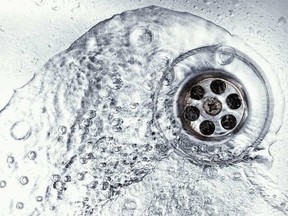Lifestyle
Avoid These Five Common Household Items Down the Drain

Improper disposal of household waste can lead to significant plumbing issues and environmental harm. Many homeowners may instinctively turn to their sink drains when faced with leftover grease or expired medication, but experts warn that this can result in costly consequences. To avoid damage to both personal plumbing and local sewage systems, here are five items that should never be poured down the drain.
1. Grease, Fats, and Oils
Cooking oils and fats are notorious for causing blockages in plumbing systems. These substances can solidify and adhere to pipes, leading to clogs that disrupt wastewater flow. In cities like Calgary, grease is a primary culprit behind sewer backups. According to the city’s official website, Calgary addresses over 8,000 sewer backups annually, spending approximately $3 million each year on repairs related to these issues. Instead of pouring leftover grease down the sink, let it cool in a container until it solidifies, then dispose of it in the compost bin.
2. Paint
Paint is another hazardous material that should never enter the drain. It contains harmful chemicals that can corrode plumbing and contaminate water systems. Kyle Leman, CEO of Crossroads Foundation Repair, advises homeowners to dispose of paint according to local regulations. Many municipalities have designated hazardous waste facilities or paint recycling centers. For example, cities like Hamilton offer paint reuse programs, allowing residents to drop off leftover paint for redistribution.
3. Certain Foods
Some food items can create significant plumbing problems when discarded improperly. Household waste like coffee grounds, eggshells, and fibrous vegetables such as onions and celery can lead to clogs. Starchy foods, including potatoes, rice, and pasta, can absorb water and expand, forming a paste that blocks pipes. Shlomo Cherniak, owner of Cherniak Home Services, recommends composting food waste instead of sending it down the drain.
4. Cleaning Solutions
Many household cleaning products contain corrosive chemicals that can damage pipes and create dangerous reactions when mixed with other substances. Products like bleach can not only eat away at plumbing but also release harmful gases. The Government of Canada suggests checking local guidelines for the proper disposal of these cleaners to prevent damage and ensure safety.
5. Medication
Flushing unwanted medications down the toilet or pouring them down the drain can have dire environmental consequences. Pharmaceuticals can contaminate waterways, posing risks to both aquatic life and human health. Instead, residents are encouraged to return unused medications to their local pharmacies, which are equipped to dispose of them safely and responsibly.
In summary, understanding proper disposal methods for household waste is crucial for maintaining plumbing systems and protecting the environment. By avoiding the drain for these five items, homeowners can contribute to healthier homes and communities.
-

 Science3 months ago
Science3 months agoToyoake City Proposes Daily Two-Hour Smartphone Use Limit
-

 Health3 months ago
Health3 months agoB.C. Review Reveals Urgent Need for Rare-Disease Drug Reforms
-

 Top Stories3 months ago
Top Stories3 months agoPedestrian Fatally Injured in Esquimalt Collision on August 14
-

 Technology2 months ago
Technology2 months agoDark Adventure Game “Bye Sweet Carole” Set for October Release
-

 World3 months ago
World3 months agoJimmy Lai’s Defense Challenges Charges Under National Security Law
-

 Lifestyle3 months ago
Lifestyle3 months agoVictoria’s Pop-Up Shop Shines Light on B.C.’s Wolf Cull
-

 Technology3 months ago
Technology3 months agoKonami Revives Iconic Metal Gear Solid Delta Ahead of Release
-

 Technology3 months ago
Technology3 months agoApple Expands Self-Service Repair Program to Canada
-

 Technology3 months ago
Technology3 months agoSnapmaker U1 Color 3D Printer Redefines Speed and Sustainability
-

 Technology3 months ago
Technology3 months agoAION Folding Knife: Redefining EDC Design with Premium Materials
-

 Technology3 months ago
Technology3 months agoSolve Today’s Wordle Challenge: Hints and Answer for August 19
-

 Business3 months ago
Business3 months agoGordon Murray Automotive Unveils S1 LM and Le Mans GTR at Monterey









